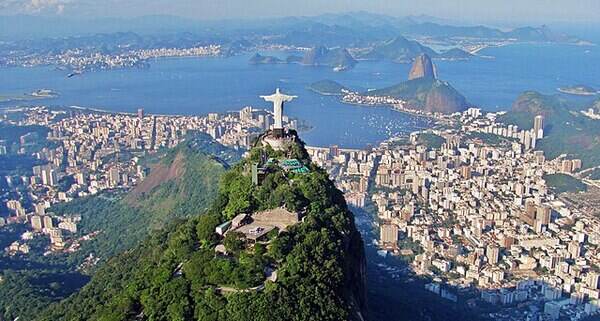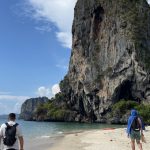Resilient Infrastructure and Development
The tourism sector in Brazil has faced significant challenges, yet resilience is the cornerstone of recovery. Investment in infrastructure has been critical to ensuring long-term success. Modernizing airports, improving road networks, and upgrading public transport systems have made travel more accessible for domestic and international visitors alike.
One notable initiative is the expansion of key airports in cities like São Paulo, Rio de Janeiro, and Brasília. These expansions increase capacity and enhance passenger experiences, reducing congestion during peak travel seasons. Additionally, improved roadways connecting tourist hubs to more remote regions encourage exploration of lesser-known destinations. Brazil’s emphasis on accessibility and seamless travel aligns with global best practices for tourism growth.
Focus on Eco-Tourism and Sustainability
Brazil’s natural beauty is one of its greatest assets. From the Amazon rainforest to the Pantanal wetlands, eco-tourism is a major driver of the country’s tourism economy. The government’s focus on sustainable tourism development ensures the preservation of these ecosystems while creating economic opportunities for local communities.
Protected areas like national parks and biosphere reserves have received increased funding. Programs that promote responsible tourism educate visitors on minimizing their ecological footprint. Partnerships with indigenous communities ensure that their traditional knowledge is integrated into conservation efforts. These measures create a unique, authentic experience for travelers while safeguarding Brazil’s biodiversity for future generations.
Strengthening Domestic Tourism
Domestic tourism has become a critical pillar for Brazil’s recovery. Campaigns promoting internal travel have encouraged Brazilians to explore their own country. By highlighting cultural festivals, culinary experiences, and historical landmarks, these initiatives have revitalized local economies and supported small businesses.
The emphasis on regional tourism also reduces dependency on international visitors, making the industry more resilient to global disruptions. Promotions offering discounted travel packages and collaborations with local airlines have made domestic travel more appealing and accessible to a broader audience.
Leveraging Digital Marketing and Technology
Digital tools and platforms are revolutionizing Brazil’s tourism landscape. Effective use of social media, travel apps, and virtual tours has played a pivotal role in attracting visitors. By showcasing destinations through immersive technologies, Brazil reaches a global audience and inspires potential travelers to visit.
Innovations like real-time booking systems and personalized recommendations enhance customer experiences. Additionally, targeted digital campaigns highlight key attractions, festivals, and unique cultural aspects of Brazilian cities and regions. These efforts ensure that Brazil remains competitive in a digitally driven tourism market.
Revitalizing Urban Tourism
Brazil’s iconic cities, including Rio de Janeiro, São Paulo, and Salvador, remain top attractions for urban tourism. The government and private sector have worked together to restore historic neighborhoods, create safe walking tours, and invest in cultural landmarks. These initiatives not only attract tourists but also enhance the quality of life for residents.
Events like the Rio Carnival and international music festivals are powerful magnets for tourism. Efforts to expand these events, including better security measures and crowd management, ensure their ongoing success. Furthermore, urban green spaces and waterfront developments have added to the appeal of major cities, making them dynamic hubs for both leisure and business travel.
Promoting Adventure Tourism
Brazil’s diverse landscapes make it a paradise for adventure seekers. From hiking in Chapada Diamantina National Park to surfing in Florianópolis, adventure tourism continues to attract thrill-seekers from around the world.
Specialized tour operators have flourished, offering tailored experiences such as paragliding, rock climbing, and river rafting. Government partnerships with these operators ensure compliance with safety standards and environmental guidelines. Adventure tourism not only diversifies Brazil’s tourism offerings but also contributes to the economy by attracting niche travelers.
Support for Local Communities
Empowering local communities has become a central theme in Brazil’s tourism recovery strategy. Programs that involve local artisans, chefs, and performers create authentic cultural exchanges between travelers and residents. Community-based tourism initiatives help distribute economic benefits to rural and underserved regions.
Projects like home-stay accommodations and guided village tours offer immersive experiences while ensuring that local residents benefit directly from tourism activities. This approach fosters sustainable growth and strengthens the social fabric of host communities.
Collaborative Public-Private Efforts
Collaboration between public and private sectors has been instrumental in driving tourism recovery. Government incentives, such as tax breaks for tourism-related businesses, encourage private investment. Partnerships with global travel agencies and airlines ensure that Brazil remains connected to major international markets.
Joint marketing campaigns targeting specific regions, such as Europe and North America, have proven effective in boosting visitor numbers. These collaborations highlight Brazil’s commitment to revitalizing its tourism sector through coordinated efforts.
Health and Safety Protocols
In the wake of the COVID-19 pandemic, health and safety have become paramount. Brazil’s implementation of stringent protocols has restored traveler confidence. Measures such as enhanced sanitation, contactless services, and vaccination requirements for certain activities ensure a safe and enjoyable experience for all.
Training programs for tourism workers focus on customer service and emergency response, equipping them to handle challenges effectively. These protocols position Brazil as a responsible destination that prioritizes visitor well-being.
By addressing key areas such as infrastructure, sustainability, and technology, Brazil is paving the way for a robust tourism recovery. The country’s diverse offerings, from urban attractions to natural wonders, ensure that it remains a top choice for travelers worldwide.


